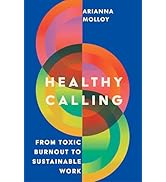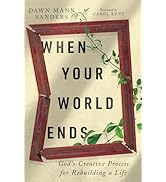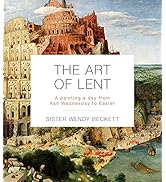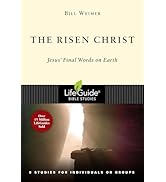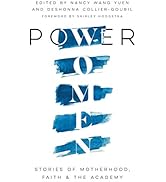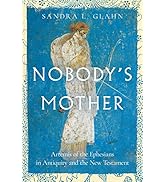Learn more
These promotions will be applied to this item:
Some promotions may be combined; others are not eligible to be combined with other offers. For details, please see the Terms & Conditions associated with these promotions.
Your Memberships & Subscriptions

Download the free Kindle app and start reading Kindle books instantly on your smartphone, tablet, or computer - no Kindle device required.
Read instantly on your browser with Kindle for Web.
Using your mobile phone camera - scan the code below and download the Kindle app.

A Free People's Suicide: Sustainable Freedom and the American Future Kindle Edition
A Logos Book of the Year
"If destruction be our lot, we must ourselves be its author and finisher. As a nation of freemen, we must live through all time, or die by suicide."
Abraham Lincoln
Nothing is more daring in the American experiment than the founders' belief that the American republic could remain free forever. But how was this to be done, and are Americans doing it today?
It is not enough for freedom to be won. It must also be sustained. Cultural observer Os Guinness argues that the American experiment in freedom is at risk. Summoning historical evidence on how democracies evolve, Guinness shows that contemporary views of freedom--most typically, a negative freedom from constraint-- are unsustainable because they undermine the conditions necessary for freedom to thrive. He calls us to reconsider the audacity of sustainable freedom and what it would take to restore it.
"In the end," Guinness writes, "the ultimate threat to the American republic will be Americans. The problem is not wolves at the door but termites in the floor." The future of the republic depends on whether Americans will rise to the challenge of living up to America's unfulfilled potential for freedom, both for itself and for the world.
Customers who bought this item also bought
From the brand

-
Women's History Month
-
Prepare for Lent
-
Meet Saint Patrick
-
Start a New Bible Study
-
Recommended Books
-
Books to Read with Your Kids
-
Ebooks on Sale
-

Who Are We?
Since 1947, InterVarsity Press (IVP) has been publishing thoughtful Christian books that shape both the lives of readers and the cultures they inhabit. Throughout these seventy-five years, our books and authors have established a legacy of speaking boldly into important cultural moments, providing timeless tools for spiritual growth, and equipping Christians for a vibrant life of faith.
From the Publisher


Zero Hour America
|

The Great Quest
|

The Magna Carta of Humanity
|

The Dust of Death
|

Carpe Diem Redeemed
|

Fool's Talk
|
|
|---|---|---|---|---|---|---|
| Customer Reviews |
4.6 out of 5 stars 32
|
4.6 out of 5 stars 89
|
4.7 out of 5 stars 175
|
4.8 out of 5 stars 42
|
4.6 out of 5 stars 135
|
4.6 out of 5 stars 482
|
| Price | $14.22$14.22 | $8.90$8.90 | $11.99$11.99 | $15.57$15.57 | $9.25$9.25 | $15.45$15.45 |
| Description | History's Ultimatum over Freedom and the Answer We Must Give | Invitation to an Examined Life and a Sure Path to Meaning | Sinai's Revolutionary Faith and the Future of Freedom | The Sixties Counterculture and How It Changed America Forever | Seizing the Day, Discerning the Time | Recovering the Art of Christian Persuasion |
| Ebook available? | ✓ | ✓ | ✓ | ✓ | ✓ | ✓ |

Last Call for Liberty
|

Impossible People
|

Renaissance
|

The Global Public Square
|

A Free People's Suicide
|
|
|---|---|---|---|---|---|
| Customer Reviews |
4.8 out of 5 stars 171
|
4.6 out of 5 stars 159
|
4.5 out of 5 stars 144
|
4.3 out of 5 stars 28
|
4.8 out of 5 stars 228
|
| Price | $23.40$23.40 | $21.25$21.25 | $11.01$11.01 | $16.19$16.19 | $5.32$5.32 |
| Description | How America's Genius for Freedom Has Become Its Greatest Threat | Christian Courage and the Struggle for the Soul of Civilization | The Power of the Gospel However Dark the Times | Religious Freedom and the Making of a World Safe for Diversity | Sustainable Freedom and the American Future |
| Ebook available? | ✓ | ✓ | ✓ | ✓ | ✓ |
Editorial Reviews
Review
"Sometimes a book is so important and so timely that not to have read it is to embarrass oneself. This is such a book. Its message is so crucial and so clear that all Americans are obligated to read it and have a national conversation on its themes. No cultural commentator or politician who has not read this book should ever be taken seriously again. Let this book be the new litmus test. If you are serious about America, be familiar with its themes and expect to discuss them and to be tested on them. Rest assured that you will be, because America is now herself being tested on them. Alas, we will not be graded on a curve. This book's clarion call is both piercing and full of hope. May God help us to hear it and to take action."
-- Eric Metaxas, author of Bonhoeffer: Pastor, Martyr, Prophet, Spy and Amazing Grace: William Wilberforce and the Heroic Campaign to End Slavery"Dr. Guinness' book is rich in its explorations of Lincoln's words and their import for us today. As an expatriate friend of America, Guinness, like de Tocqueville, has a rare gift for helping us see our better selves. He casts a discerning eye at our modern institutions, and habits of the heart―as reflected in the broader culture. He freely concedes that there are worrying signs on the horizon, but then, having thoughtfully set out the challenges we face in our historical moment, he brings us back to the best things the founders gave us. On the whole, it's a fascinating perspective from a British citizen."
-- Kevin Belmonte, Huffington Post Religion Blog, September 1, 2012"In a passionate work that blends historical-cultural analysis with moral exhortation, Os Guinness finds at the heart of America's culture wars something different than what many observers have seen. He identifies a 'freedom war,' a struggle over the very concept of freedom itself. As the Founders well understood, it is not enough for Americans to invoke endlessly the name of 'freedom' when they no longer agree as to what it means or what ends freedom is meant to serve. Guinness warns that freedom cannot long endure unless it is consecrated to purposes beyond itself. It is a warning worth heeding."
-- Wilfred M. McClay, SunTrust Chair of Excellence in Humanities, University of Tennessee at Chattanooga, and author of The Masterless: Self and Society in Modern America"A Free People's Suicide challenges each and every citizen concerned about America's diminishing role as a beacon of liberty not only to comprehend the urgency, but also to participate comprehensively in freedom's preservation."
-- Albin Sadar, The Washington Times, washingtontimes.com"With passion and urgency Os Guinness gives a sweeping historical account of America's past and her prospects for the future. He urges us to pay serious attention to a deeper understanding of freedom and makes a compelling case for why freedom requires virtue. Weaving together a wide-ranging knowledge of classical, constitutional and contemporary history, Guinness warns of America's decline but charts a course for America's renewal. It is a straight-shooting and sober volume, yet in the end it is a hopeful book."
-- Michael Cromartie, vice president, Ethics and Public Policy Center, Washington, DC"A Free People's Suicide is an inside view from the outside. Os Guinness has a clear eye, a quick mind, a profound grasp of political philosophy and an eloquent pen. His analysis of American freedom, what it has been, now is and is likely to become, is a clarion call for renewal of the founders' vision for a free people."
-- James W. Sire, author of The Universe Next Door and Václav Havel: The Intellectual Conscience of International Politics"Os Guinness enlightens, cheers, chastises and informs with this latest contribution to our civic discourse. Guinness here solidifies his reputation as one of the most nimble voices from the Christian community as he surveys our history and our present with appreciation as well as deep concern. Highly recommended for all interested citizens, whatever their political or faith commitments."
-- Jean Bethke Elshtain, Laura Spelman Rockefeller Professor of Social and Political Ethics at the University of Chicago, author of Sovereignty: God, State and SelfReview
"In a passionate work that blends historical-cultural analysis with moral exhortation, Os Guinness finds at the heart of America's culture wars something different than what many observers have seen. He identifies a 'freedom war,' a struggle over the very concept of freedom itself. As the Founders well understood, it is not enough for Americans to invoke endlessly the name of 'freedom' when they no longer agree as to what it means or what ends freedom is meant to serve. Guinness warns that freedom cannot long endure unless it is consecrated to purposes beyond itself. It is a warning worth heeding."
-- Wilfred M. McClay, SunTrust Chair of Excellence in Humanities, University of Tennessee at Chattanooga, and author of The Masterless: Self and Society in Modern AmericaAbout the Author
OS GUINNESS (DPhil, Oxford University) is an author and social critic. Born in China, he was educated in England at the Universities of London and Oxford. He moved to the United States in 1984, and has been a Guest Scholar at the Woodrow Wilson Center and a Visiting Fellow at the Brookings Institution. He was the lead drafter of both the Williamsburg Charter and the Global Carter of Conscience, as well as the founder of the Trinity Forum. He has written more than 25 books, including The Call, The American Hour, Time for Truth, Unspeakable, The Case for Civility, A Free People's Suicide, and his latest: The Global Public Square. He lives with his wife Jenny in McLean, Virginia.
Product details
- ASIN : B008DXAWPO
- Publisher : IVP (June 11, 2012)
- Publication date : June 11, 2012
- Language : English
- File size : 3.6 MB
- Text-to-Speech : Enabled
- Screen Reader : Supported
- Enhanced typesetting : Enabled
- X-Ray : Not Enabled
- Word Wise : Enabled
- Print length : 225 pages
- Best Sellers Rank: #559,601 in Kindle Store (See Top 100 in Kindle Store)
- #251 in Religious Studies - Church & State
- #953 in Federal Government
- #3,169 in U.S. Political Science
- Customer Reviews:
About the author

Os Guinness is an author and social critic. Great-great-great grandson of Arthur Guinness, the Dublin brewer, he was born in China in World War Two where his parents were medical missionaries. A witness to the climax of the Chinese revolution in 1949, he was expelled with many other foreigners in 1951 and returned to Europe where he was educated in England. He completed his undergraduate degree at the University of London and his D.Phil in the social sciences from Oriel College, Oxford.
Os has written or edited more than thirty books, including The Call, Time for Truth, Unspeakable, A Free People’s Suicide, and The Global Public Square. His latest book, Last Call for Liberty: How America’s Genius for Freedom Has Become Its Greatest Threat, was published in 2018.
Since moving to the United States in 1984, Os has been a Guest Scholar at the Woodrow Wilson Center for International Studies, a Guest Scholar and Visiting Fellow at the Brookings Institution, and Senior Fellow at the Trinity Forum and the EastWest Institute in New York. He was the lead drafter of the Williamsburg Charter in 1988, a celebration of the bicentennial of the US Constitution, and later of “The Global Charter of Conscience,” which was published at the European Union Parliament in 2012. Os has spoken at many of the world’s major universities, and spoken widely to political and business conferences across the world. He lives with his wife Jenny in the Washington DC area.
Customer reviews
- 5 star4 star3 star2 star1 star5 star84%13%3%0%0%84%
- 5 star4 star3 star2 star1 star4 star84%13%3%0%0%13%
- 5 star4 star3 star2 star1 star3 star84%13%3%0%0%3%
- 5 star4 star3 star2 star1 star2 star84%13%3%0%0%0%
- 5 star4 star3 star2 star1 star1 star84%13%3%0%0%0%
Customer Reviews, including Product Star Ratings help customers to learn more about the product and decide whether it is the right product for them.
To calculate the overall star rating and percentage breakdown by star, we don’t use a simple average. Instead, our system considers things like how recent a review is and if the reviewer bought the item on Amazon. It also analyzed reviews to verify trustworthiness.
Learn more how customers reviews work on AmazonCustomers say
Customers find the book thought-provoking, providing eloquent insights into American culture. Moreover, they consider it a must-read for every American, with one customer noting it's a favorite philosophy book of all time. Additionally, the writing quality receives positive feedback for its understanding prose and clarity, while customers appreciate its timely relevance.
AI-generated from the text of customer reviews
Select to learn more
Customers find the book thought-provoking and insightful, providing eloquent insights into American culture and eye-opening perspectives.
"...He begins by making the case that the most basic defining principle for any nation is what St. Augustine calls the "loved thing held in common" or..." Read more
"...But this approach by Guinness makes the message equally relevant and compelling to either religious or non-religious people...." Read more
"...His research into the foundation of freedom is dramatic and truthful. It is not exaggeration to say that freedom is precious...." Read more
"...But I recommend the book as a serious and helpful way to go forward." Read more
Customers find the book highly readable, describing it as a must-read for every American and one of their favorite philosophy books of all time.
"...But this approach by Guinness makes the message equally relevant and compelling to either religious or non-religious people...." Read more
"I am familar with Os Guinness's work. Able, an exceptional presenter, and writer...." Read more
"...A must read for ALL AMERICANS." Read more
"...of freedom (winning, ordering and sustaining freedom) was compelling and something he obviously has spent a good deal of time researching and..." Read more
Customers appreciate the writing style of the book, describing it as concise, clear, and not difficult to read, with quotes that make for a compelling time.
"...Able, an exceptional presenter, and writer. If one desire to get the mind a brief history of freedom in America, I commend this book to the reader...." Read more
"...This makes for easy reading and for easy recall in memory. I highly recommend this book." Read more
"This book is an intelligent and readable argument based on the paradox that the greatest enemy of a free society is the unfettered exploitation of..." Read more
"...This book is a specific diagnosis of the Cancer that is killing us and a robust prescription for healing. I, for one, am better for having read it." Read more
Customers find the book timely.
"...Mr. Guiness' call to courage is needed, timely, gracious, and bold. We need more writing like this. We need more thinkers and communicators like him...." Read more
"...To say this book is a must is an understatement. This book is very timely and possibly better written than most...." Read more
"Well Researched and Timely..." Read more
"insightful and timely..." Read more
Top reviews from the United States
There was a problem filtering reviews. Please reload the page.
- Reviewed in the United States on November 3, 2012Oz Guinness has hit the nail on the head with this book. The American underpinnings are definitely corroding and under attack by those who seek to fundamentally change our core principles. Guinness seeks to combat this corrosion by offering a well-reasoned and attainable antidote.
He begins by making the case that the most basic defining principle for any nation is what St. Augustine calls the "loved thing held in common" or what a nation holds in highest regard is that which can be used as the barometer to measure that nation. For America it is without a doubt freedom. Guinness points out that if America wants to hold on to that which it loves so dearly, it must understand the menaces that will be its downfall and what sustaining a free nation entails.
The lack of self-restraint and the "corruption of customs" are a couple of the menaces we must overcome. He argues that the rise of private interest above the public good, the propensity for self-love, and the desire for instant gratification will lead to a corruption of our customs. In addition the lack of strong leaders, the missing sense of civic duty, and culture wars targeted at removing truth and objective standards are all issues at the core of America's freedom decay if left undefended.
He correctly believes if a few of the most basic tenets can be comprehended and acted upon, then there is hope for this nation. The first is that the definition of freedom itself is not fully understood in present day America. We only know freedom as the negative kind, the freedom that is only seeking to remove the chains of bondage from its oppressor (i.e., slavery). While this definition, as important as it is, when held unaccountable, will be licenses simply to do whatever one wants with no regard for the good of the community. Guinness points out that if we want to create productive citizens, who seek to sustain freedom, then we need to understand that freedom is not only freedom from, but more importantly freedom for. This freedom encourages one to long for the liberty to do what a good citizen ought such as serve in public office. To live as the forefathers thought most prudent.
Upon this accurate understanding of freedom, Guinness further builds his case to reveal what he calls the "Golden Triangle of Freedom." Similar to the recycle triangle where each leg of the triangle is dependent upon the other so is his Golden Triangle. The first leg is "Freedom requires virtue" which can be summed up as character. The second is "virtue requires faith of some sort" meaning that basically all religions seek to create people who long for the common good of man while generations of atheist cannot sustain virtue. The last is "faith requires freedom." Disestablishment of religion in America was new to the world but essential for a truly free people. And so on and so on the cycle continues. Each point is well supported and chalked full of ideas and quotations from well respected political thinkers and philosophers as well as the founders of this nation.
Guinness points out that our founders bravely gained and wisely ordered freedom, and generations since have written many chapters enriching the novel of American. Will the chapter we write be the conclusion? Can we sustain Freedom in America? Guinness believes this is possible if we take the time to learn from the past so we can shape the future. He winsomely warns that "Americans must never forget: all who aspire to be like Rome in their beginnings must avoid being like Rome at their ending. Rome and its republic fell, and so too will the America republic--unless . . ."
I strongly agree with Guinness, and I would recommend every American begin restoring their civic duty by picking up a copy of this book and teach the next generation what being an American is truly about.
- Reviewed in the United States on April 13, 2016Others have written more literate and comprehensive reviews of A Free People's Suicide than I could ever hope to write. Allow me these two observations, however....
First, I consider this to be the most important book I have read in at least 40 years (I am 72). Guinness' "outsider's" view (he is Irish) of America's cultural collapse is incredibly spot on. I have ordered 30 copies to give to friends, family members, and business associates. I expect to be ordering at least that many again. Enough said.
Second, Os Guinness is a Christian speaker, author, and philosopher, who worked for many years with Francis Schaeffer, of L'Abri fame. But this book is not written for a strictly Christian audience, though it doesn't take a genius to discern the Judeo-Christian worldview behind it. But this approach by Guinness makes the message equally relevant and compelling to either religious or non-religious people.
Please read and understand it! Our future as a free nation may depend on it.
- Reviewed in the United States on January 27, 2013I am familar with Os Guinness's work. Able, an exceptional presenter, and writer. If one desire to get the mind a brief history of freedom in America, I commend this book to the reader. His research into the foundation of freedom is dramatic and truthful.
It is not exaggeration to say that freedom is precious. Some 70 years after the Revolutionary War, an interviewer asked on to those who fought for freedom. The retired soldier stood erect and said the reason he and others fought is:
"Always free, free always."
I think this idea introduces the reason for sustainable freedom. If we hold the idea in our minds, just perhaps America's freedom will again be lauded and indeed this will be "home of the free and the brave."
- Reviewed in the United States on April 2, 2013This book tells a lot that online college courses & professors are missing. The title should not scare a reader away. It speaks volumes, and shows how serious the author sees our current situation & dangers in this country (USA). This helps greatly since the news reporters seem to be part of the very pathetic irrational state of things.
A very good point he makes is that we the American people have not kept our responsible side of the covenant; our founding fathers & founding documents were set up to guide us, and we have been apathetic and foolish, and schools haven't produced many clear thinking people.
To me, he could be much more critical of those responsible for the mess. But he gives some helpful criticisms by those outside the U.S. that are worth considering. Because the author is not a native American, he can observe us in a critical yet positive light.
The book seems to barely touch on economic disasters so prevalent, due to ignorance and bad choices being made, past & present. A kind of irrational climate exists with "escape from reason" being central, so people don't seem even to savor rational thought.
Also, Mr. Guinness doesn't seem to mention the deplorable non-education & mis-education of children and adults for decades. The author is English, and his country is a mess also. But still, his book is far better than many negative books that give no thought to possible solutions.
But his solutions don't seem as strong as they should be, in asking what is the truth of the reality we face? Why the terrific mess? And where have we made so many errors in the past that have produced such poor results & negligent, even criminal officials in gov't? --- Also, what & why have the courts, gov't and schools done specifics to give us a nation of non-thinking people, who generally don't dare? But I recommend the book as a serious and helpful way to go forward.
Top reviews from other countries
 Daniel PollinReviewed in the United Kingdom on January 26, 2013
Daniel PollinReviewed in the United Kingdom on January 26, 20135.0 out of 5 stars Take heed.
Guinness writes with his usual clarity, grace and wisdom. Primarily a book that looks at a perpetual question of American democracy - is freedom freedom's greatest enemy? Guinness looks backward and forward in American history in order to answer this compelling and urgent question.
-
 HannielReviewed in Germany on April 26, 2018
HannielReviewed in Germany on April 26, 20185.0 out of 5 stars Eine Vision für die Erhaltung und Wiedergewinnung der Freiheit für Amerika (und für den Westen)
Für eilige Leser
Guinness entwickelt in diesem essay-artigen - ich möchte fast sagen - Gemälde eine Vision für die Erhaltung und Wiedergewinnung der Freiheit für die Vereinigten Staaten von Amerika. Er verbirgt seine tiefe Besorgnis, dass diese akut gefährdet ist, nie. Die klar umrissene Kulturkritik gleicht der eines weisen Propheten und nicht der eines Schwarzmalers.
Guinness spricht über
ein Problem unter der Oberfläche, das hinter zahlreichen anderen Ereignissen der USA stehe. Mit Verweis auf Augustinus meint er: Wenn du beurteilen willst, wie es um eine Nation bestellt ist, dann blicke darauf, was ein Volk am meisten liebt. Wenn diese Liebe „nobel“ ist, dann ist es um ihre Gesundheit gut bestellt. Für die USA betrifft dies seit der Gründungszeit ihre Freiheit. Die Gesundheit dieses Staates kann also am Status seiner Freiheit gemessen werden. Viele der Gründerväter waren beseelt von der Idee, eine freie Gesellschaft zu gründen, die für immer frei bleiben würde. Was kann also Freiheit erhalten bleiben?
Frei werden, Freiheit ordnen, frei bleiben
Der erste Akt dieser Freiheit war die Unabhängigkeitserklärung (1776), der zweite, dieser Freiheit einen Rahmen zu geben, nämlich die Verfassung (1778). Freiheit muss geordnet werden. Die Russen und Chinesen taten dies nicht gleicherweise, und die Freiheit entfaltete dementsprechend ihre dämonische Seite. Die dritte Aufgabe ist die härteste: Die Freiheit zu erhalten. Der 28-jährige Abraham Lincoln hielt die berühmte Rede „The Perpetuation of Our Political Institutions“ (1837). Die Nation wird frei und mächtig und hält ihre Freiheit für selbstverständlich.
Drei Gefahren für die Freiheit
Die römischen Klassiker – Cicero und Polybius – hatten ein klares Verständnis davon, was eine freie Gesellschaft stets durch externe Gefahren bedroht ist. Die zweite Bedrohung ist viel subtiler: Die Verderbnis der Sitten und Gewohnheiten. Der dritte Faktor stellt die Zeit dar. Routine verdrängt die Frisch. Edward Gibbon (1737-1794) antwortete auf seine selbst aufgeworfene Frage, warum Rom fiel, zuerst: Durch die Wunden der Zeit.
Freiheit beginnt mit Selbstbeschränkung
Es gilt das Paradoxon: Der größte Feind der Freiheit ist die Freiheit. Keine freie Gesellschaft hatte je dauerhaften Bestand. Freiheit benötigt nicht nur den Schutz durch Gesetze, sondern sie setzt den Geist der Freiheit voraus. Freiheit ist eine zutiefst moralische Angelegenheit. Sie benötigt Ordnung. Diese Ordnung beginnt bei der Selbstbeschränkung. Denn Freiheit besteht nicht darin das zu tun, was man will, sondern das, was man sollte
Die drei Beine der Freiheit
Freiheit steht auf drei Beinen. Zuerst: Freiheit setzt Tugend voraus. Etymologisch kommt Tugend vom Wort „Mut“ und schliesst alles ein, was Charakter betrifft. Zum Beispiel verstehen die Bewohner die Aufgaben der Bürgerschaft. Der Charakter eines Führers ist deshalb so entscheidend, weil die Geführten ihm auch dann vertrauen können, wenn sie nicht genau wissen, was er tut. Dann: Tugend setzt eine Art des Glaubens voraus. Der Glauben schliesslich setzt Freiheit voraus.
Wie ist die Entwicklung des Westens unter diesen Gesichtspunkten zu betrachten?
Der Glaube wurde im 19. Jahrhundert schrittweise privatisiert und galt fortan als öffentlich irrelevant. Dazu gesellte sich im 20. Jahrhundert die Auffassung, der öffentliche Raum sei eine neutrale Arena von miteinander im Wettbewerb stehenden Interessen. So bleibt kein Platz für Glaube und Tugend im öffentlichen Raum übrig. Vervollständigt wird es durch den postmodernistischen Leitsatz, dass keine übergeordnete Wahrheit existiert, sondern alles durch eine Agenda der Macht motiviert sei.
Was also sind aktuelle Bedrohungen der Freiheit?
• Die Entfremdung der Führer: Keine Nation kann langfristig überleben, wenn eine Anzahl ihrer Führer das ignoriert, was die Nation ausmacht.
• Die erschwerte Weitergabe bzw. Unterbrechung von Werten an die nächste Generation. Dies geschieht durch Ausbildung und Immigration.
• Die Verderbnis der Sitten (corruption of customs). Das jüdisch-christliche Erbe wurde schrittweise zurückgewiesen. Wahre Freiheit ist jedoch immer auch Freiheit zu etwas hin. Diese positive Ausrichtung fehlt. Die zeitgenössische Vorstellung ist hauptsächlich permissiv und darum nicht nachhaltig.
Was ist nötig für ein Umdenken?
Zuallererst ist Leadership (Führung) gefragt. Welcher Führer verkörpert heute die Vision der Freiheit (Tugend, Glauben, Freiheit)? Auf diese Frage bekommt Guinness keine Antwort. Zweitens benötigen wir eine Wiederherstellung von staatbürgerlicher Erziehung (civic education). Es braucht Unterricht der Amerikaner für die nächste Generation von Amerikanern. Es braucht Erziehung zur Freiheit.
Die Gründerväter hatten eine klare Vorstellung, wie Freiheit wiederhergestellt werden kann. Was den Juden der Exodus war, den Puritanern die Bekehrung, war für den Staat die Revolution. Was den Juden und den Puritanern der Bund war, fusste für den Staat in der Verfassung, einem bindenden Übereinkommen. Was die Juden Rückkehr nannten, bezeichneten die Puritaner als Erweckung (revival). Dies kann auf der staatlichen Ebene als Rückkehr zu den ersten grossen Prinzipien beschrieben werden. Es steht in der Verantwortung jeder neuen Generation, dorthin zurück zu streben.
 Jane EryeReviewed in Canada on August 24, 2019
Jane EryeReviewed in Canada on August 24, 20195.0 out of 5 stars Os Guinness is a brilliant speaker and writer.
Excellent analysis of the American constitution, free speech and post modernism.
 dave andersonReviewed in Canada on September 26, 2019
dave andersonReviewed in Canada on September 26, 20195.0 out of 5 stars meets my expectation
appreciate good books like this one











